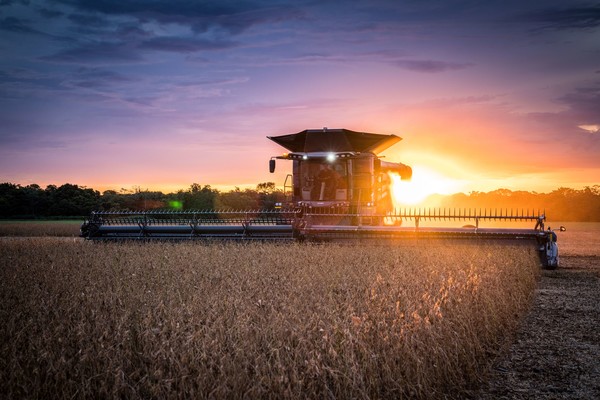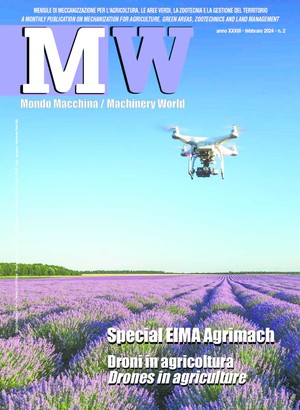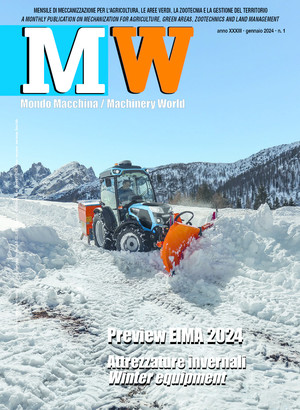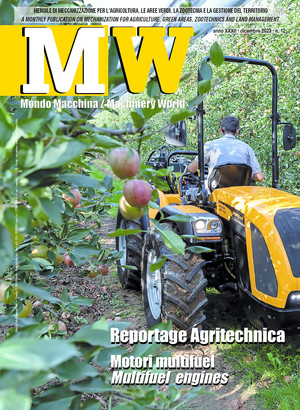
Agricultural mechanisation, global market variables
On 3 July, as part of the FederUnacoma Generale Assembly, a conference was held on 'Beyond the economic situation: planning activities, planning investments'. At the centre of the speeches were the challenges posed to agro-mechanical companies by the new economic-productive structures created by the pandemic and the war in Ukraine
The economic crises of recent years, brought about by unpredictable events such as the pandemic, global inflation and the war in Ukraine, have severely tested production systems and reduced the ability of companies to plan economic activities. The only way for them to react to uncertainty is to intensify their analysis of the socio-political and economic variables influencing the markets, and to seize the opportunities offered by the most advanced technological innovations. This is the scenario that FederUnacoma outgoing president Alessandro Malavolti envisaged when opening the meeting on 'Beyond the economic situation: planning activities, planning investments', held on 3 July at Palazzo Varignana (Bologna) as part of the FederUnacoma General Assembly.
The Italian agricultural mechanics industries have favoured the modernisation process of our agriculture and have reached positions of absolute excellence,' stressed the Minister of Agriculture Francesco Lollobrigida, 'thanks to their ability to develop advanced technologies capable of responding to increasingly complex challenges. Thanks to the integration of machinery with the latest information and satellite technologies, the minister noted, it is possible to reach high performance levels that were almost unthinkable just a few years ago, promoting a model of agriculture that is fully sustainable in economic, environmental and social terms. Incentivising and supporting the innovation of our industries is therefore a strategic objective for the country-system. "We are committed to creating the conditions for the agricultural sector to make a further leap forward in terms of competitiveness,' Lollobrigida stressed, 'while maintaining the high level of quality of our agri-food production, which is renowned throughout the world.
The profound change of scenario that occurred between 2019 and 2023 has upset the international order and balance that had been consolidated with globalisation. Covid, the geopolitical crisis and trade tensions with China,' explained Bocconi University professor Carlo Altomonte, 'are changing the geography of world trade and determining a reconfiguration of value chains with an increasing regionalisation of production flows. This is a global phenomenon that also affects the European context where we are witnessing an increase in demand for intermediate goods produced within the continent compared to those imported from non-EU countries.
On the agricultural front, the growth in demand for foodstuffs is driven by increased demographic pressure and changing lifestyles. "World consumption of soft wheat," Angelo Frascarelli, professor at the University of Perugia, said in his report, "has grown by 22 per cent since 2010, while overall cereal consumption has grown by 31 per cent. The climate crisis, the cost of energy, the difficulty of finding inputs for production, price volatility and the problem of labour are, however, variables that weigh on the productivity of agriculture and its ability to respond to the growing demand for foodstuffs". European farms, in particular, are weighed down by the sustainability constraints linked to the Green New Deal and Farm to Fork policies - Frascarelli explained - with stringent objectives: a 50% reduction in the use of pesticides and antimicrobial substances, as well as fertilisers, is planned by 2030. According to the EU Commission's Joint Research Centre forecasts, the impact of the Farm to Fork programme will produce in the EU a drop in agricultural production of between 5% and 15%, a 10% increase in farm costs, and a worsening of the trade deficit for oilseeds, fruit and vegetables, beef, sheep and goat meat. "In the face of this," Frascarelli concluded, "farms must invest in new-generation technologies and exploit the possibility of producing energy from renewable sources.
The transformation of the primary sector, it was emphasised at the conference, is an ongoing process. "In just a few decades, machine performance has improved significantly and electronics have become dominant. Considerable improvements have also been made on the engine and fuel consumption front, and on the digitisation of equipment, tractors and combine harvesters," said the Rector of the University of Bologna, Giovanni Molari. In Italy the value of the agritech market has exceeded two billion euro, Apps and smart systems - added Molari - are now used by more than 70% of farms. In this perspective, universities and research centres are called upon to play a strategic role not only to boost technologies but also to train young farmers in the use of 4.0 systems. "Research will always be driven by the university world, and this year - concluded the Rector - the University of Bologna has made available 202 PhD scholarships aimed precisely at creating professionalism consistent with the innovation needs of farms."
In the agro-mechanical sector, the new technological frontier is that of highly automated systems, which are already being used to perform a wide range of agricultural tasks. Agricultural robots, including self-driving tractors, are mainly used for sowing, pesticide treatments, harvesting, and soil monitoring and mapping. "These machines - explained Marko Bertogna, professor at the University of Modena and Reggio Emilia - are equipped with highly sophisticated digital systems, such as LiDAR sensors and high-resolution RGB cameras, which allow them to acquire information from the environment, process it, and use it for production purposes. In recent years, robotic technologies have undergone significant development, but - Bertogna pointed out - they still have significant margins for improvement, especially in terms of navigation and localisation in the absence of a GPS signal, object manipulation, and interoperability, i.e. the ability to carry out different types of work, from sowing to pesticide treatments and crop monitoring.








